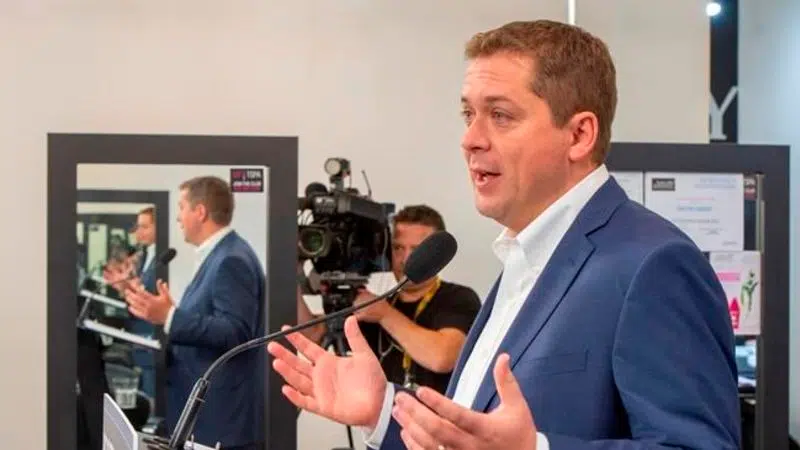
Conservatives promise to boost federal contribution to RESP to 30 per cent
WINNIPEG — Conservative Leader Andrew Scheer said Tuesday he wants to help parents save up to send their children to college or university by increasing the amount of money the federal government contributes to the pot.
Scheer was continuing his week of pocketbook promises on a campaign swing through Winnipeg, where the Conservatives are hoping to take back some of the six seats they lost to the Liberals and NDP in 2015.
He is proposing to increase Ottawa’s contribution to registered education savings plans (RESPs) to partly match what parents contribute. The current program will add 20 per cent to any parental contribution up to $2,500. Scheer would increase that to 30 per cent, meaning the maximum annual contribution from the federal government would go from $500 to $750.
Scheer said for most families, being able to afford a post-secondary education — be it university, college or trade school — takes years of parents’ “scrimping and saving.”


